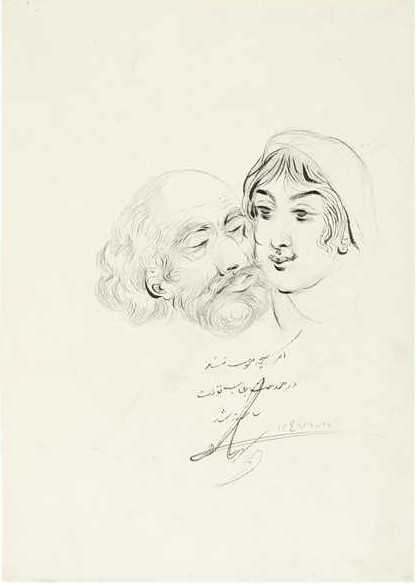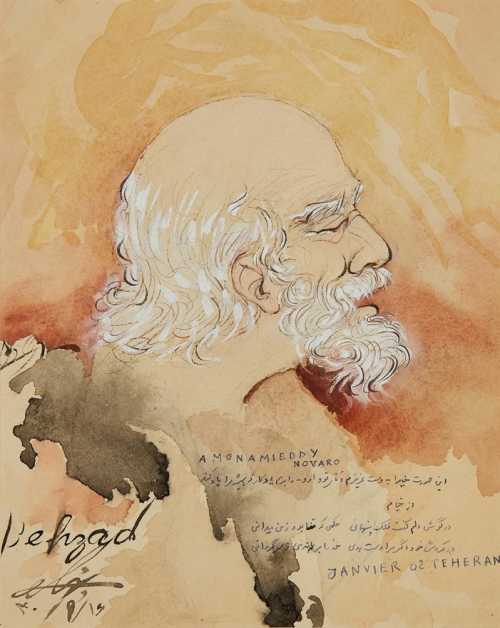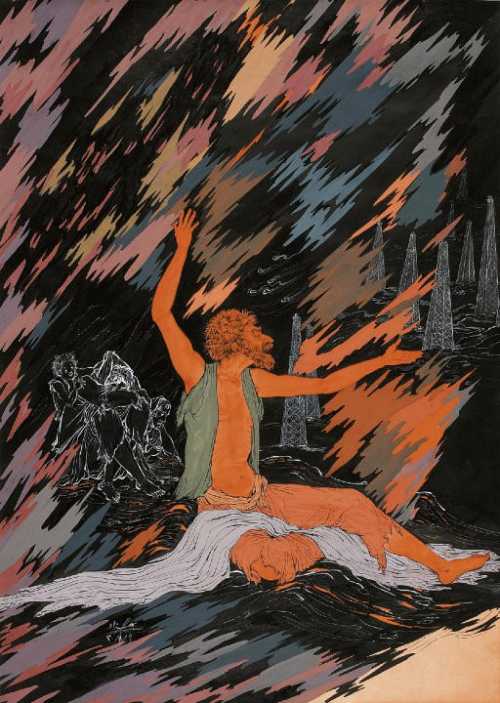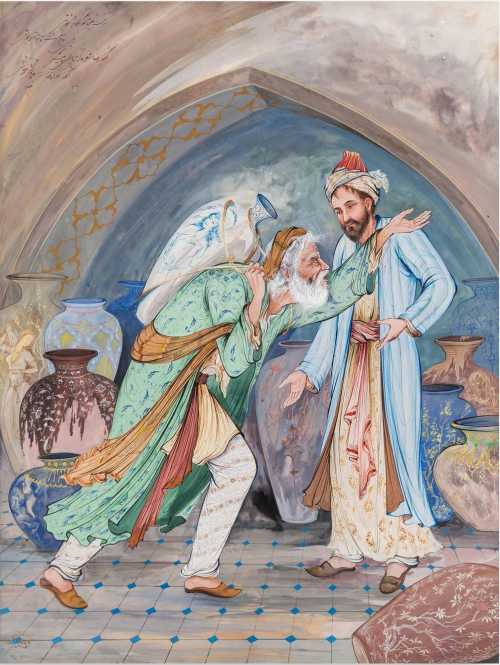- Proprietors of the Black Gold 1952
- gouache on cardboard
- Handicrafts and classics, miniature
- 39.5 * 55.3 cm
- signed and dated in Farsi (lower left)
Artwork Description
The Anglo-Iranian Oil Company (AIOC), formerly the Anglo-Persian Oil Company (APOC) controlled the revenue from the export of oil products from Iran, such that Iran received only 16 percent of the net profits. By 1950, the oil refinery at Abadan had become the world's largest. The government of Iran wanted to negotiate a larger share in the company, but were offered only a larger share of the revenues. The Iranian Prime Minister Mohammed Mossadegh moved to nationalize the oil industry in 1951, leading to the Abadan Crisis, with foreign countries refused to import Iranian oil. The Abadan refinery was closed, and AIOC withdrew from Iran and traded off its other reserves until military intervention restored its ownership in 1954, although it lost its monopoly, forcing it to operate as one member of a consortium of Iranian Oil Participants. In that year AIOC changed its name to British Petroleum. The British oil concession was negotiated between William Knox D'Arcy and the Shah Mozzafar al-Din Shah Qajar of Persia in 1901. This gave control of Iranian oil reserves to Britain for 60 years. Soon D'Arcy, almost bankrupt by the high cost of exploration, sold a large portion of the stock to the Burmah Oil Company Ltd. The Anglo-Persian Oil Company (APOC) was created as a subsidiary, and floated some of the shares on the British stock market. From 1913 Iranian oil products were exported in bulk, produced at a refinery built at Abadan. In order to secure oil supplies for its fleet, the British government partly nationalized the company.
More lots by Hossein Behzad

Ten Rare and Unseen Preparatory Figural Sketches By HOSSEIN BEHZAD For His Pupil, TOWLIAT
Estimation
£2,000
2,431 USD
-
£3,000
3,646 USD
Realized Price
£1,625
1,975 USD
35%
Sale Date
Chiswick Auction
-
31 October 2023

Untitled
Estimation
£1,000
1,249 USD
-
£1,500
1,873 USD
Realized Price
£982
1,226 USD
21.44%
Sell at
Sale Date
Rosebery's Auction
-
26 April 2024

Untitled
Estimation
800,000,000﷼
2,410 USD
-
1,000,000,000﷼
3,012 USD
Realized Price
800,000,000﷼
2,410 USD
11.111%
Sell at
Sale Date
National Auction
-
22 June 2022
Realized Price
11,082 USD
Min Estimate
7,701 USD
Max Estimate
10,433 USD
Average Artwork Worth
+0.149%
Average Growth of Artwork Worth
Sales Performance Against Estimates
Average & Median Sold Lot Value
2020 - 2024
Performance vs. Estimate
2020 - 2024
Sell-through Rate
2020 - 2024

